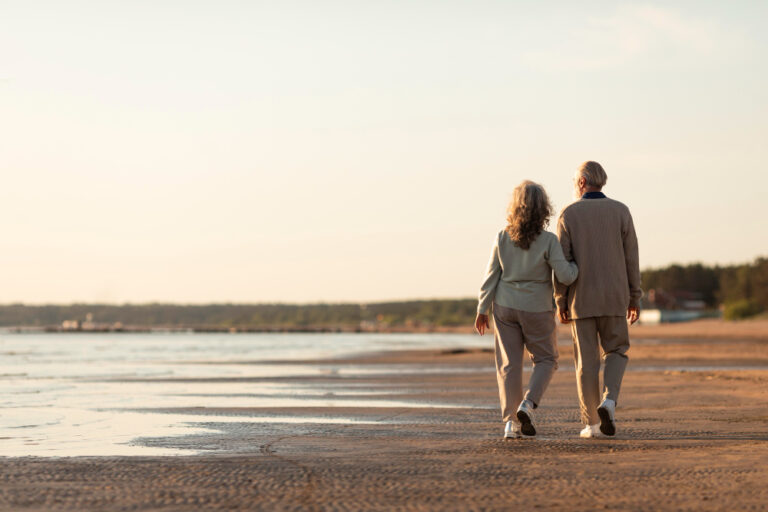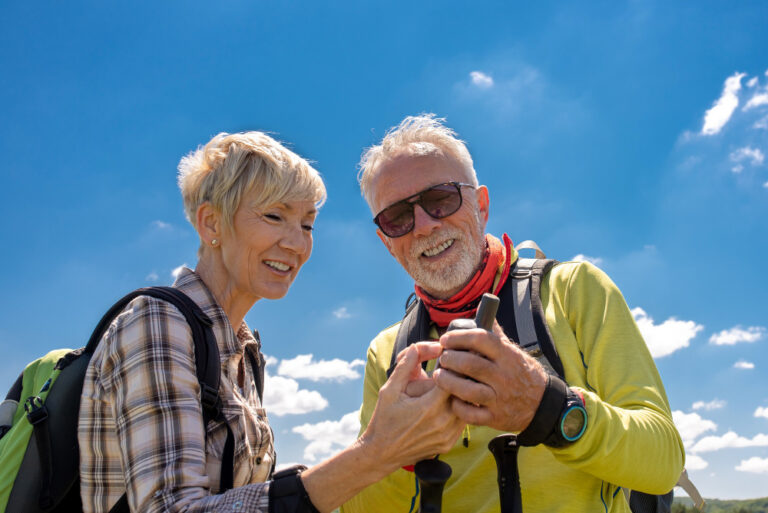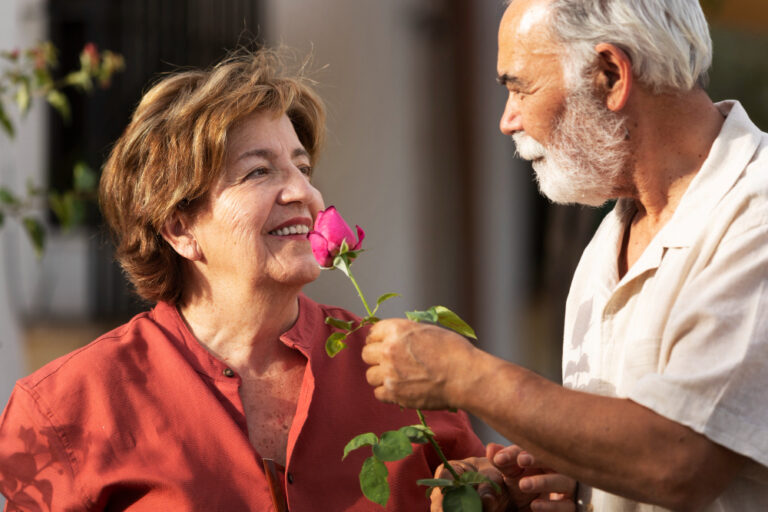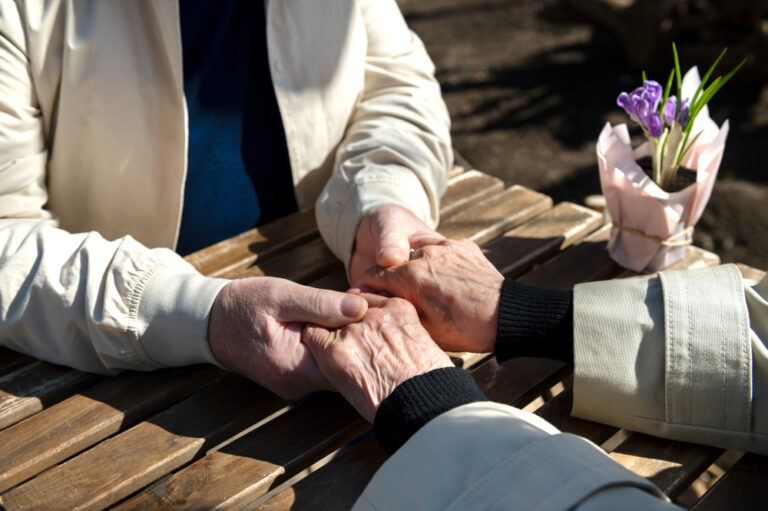In the modern world, advances in technology have not only made our lives easier, but have also redefined the way many people of all ages live their lives. For older adults in San Francisco, finding the right partner through social platforms like SeniorMatch is a new lifestyle choice. And after finding the right partner, planning a trip for two together can not only deepen their understanding of each other, but also add more colour to their lives. So what factors do older people need to consider when planning such a trip? In this article, we will explain in detail how to plan a great trip for two and what to do before you go.
Selection of Travel Destination
Interests
when choosing a travel destination, the first thing to consider is the interests of both partners. San Francisco seniors who find a partner on SeniorMatch may have different interests, such as culture and the arts, nature, and historical sites. When choosing a destination, try to select places that cater to both interests, such as New York City for art lovers and national parks for those who enjoy nature.
Climatic Conditions
Climatic conditions are an important factor when choosing a travel destination. Older people are usually more sensitive to climate change, so choosing the right season and climate is especially important. For example, it may be a good idea to choose a beach destination if both prefer warm weather, or a mountainous area if cooler climates are preferred.
Accessibility
Considering the physical condition of an elderly person, accessibility is also a key factor. Choosing destinations that are easily accessible, such as large cities or popular tourist destinations, can reduce fatigue during the journey. If connecting flights or long journeys are required, it is best to choose direct flights or minimise travel time.
Formulation of Travel Plans
1. Develop an Itinerary: Developing a detailed itinerary is key to the success of the trip. This includes a daily schedule of activities, dining options and rest periods. To avoid an overly stressful schedule, it is recommended to schedule a moderate amount of activities each day and allow enough time for rest. For example, plan to visit a museum in the morning and take a relaxing walk or go shopping in the afternoon.
2. Book Accommodation: Choosing comfortable accommodation is particularly important for the elderly. Try to choose hotels or bed and breakfasts that are highly rated and have good facilities. Always make sure the accommodation is accessible and has comfortable beds. If there are special needs, such as barrier-free facilities or extra bathrooms, check with the hotel in advance when booking.
3. Understand Local Culture and Customs: Understanding the culture and customs of the travelling destination not only helps both parties to better integrate into the local environment, but also avoids unnecessary embarrassment. For example, certain countries or regions may have specific etiquette or taboos, and knowing this information in advance can make travelling more enjoyable.
Health and Safety Preparation
Health Check
Before departure, it is recommended to have a thorough health checkup to ensure that you are physically fit to travel. If you have chronic illnesses or special medical needs, consult your doctor in advance and prepare the appropriate medication and medical records. Bring commonly used medications, such as high blood pressure medication and diabetes medication, and place them in your carry-on luggage to avoid checking them in.
Travel Insurance
Purchasing travel insurance is an important step in ensuring a safe trip. Travel insurance can cover unforeseen circumstances such as accidental injuries, medical expenses, and loss of luggage. When choosing an insurance policy, you can select the right plan based on the specific risks of your travel destination and your personal needs.
Emergency Contacts
It is important to stay in touch with your family or friends while traveling. Make sure to carry a list of emergency contacts, including family and friends, doctors and local emergency service numbers. You can also use mobile apps to record and share your itinerary so that you can find help quickly in the event of an emergency.
Preparation of Traveling Gear
1. Comfortable Clothing and Shoes: Choosing comfortable clothing and shoes is fundamental to ensuring a pleasant trip. Especially for the elderly, comfortable shoes can reduce foot discomfort and avoid fatigue associated with long hours of walking. It is recommended to choose clothing that is appropriate for the weather and consider layering to make adjustments according to climate change.
2. Travel Necessities: Prepare travel necessities such as passport, air ticket, hotel booking confirmation, bank card, cash, etc. It is recommended to use a waterproof bag or passport holder to protect your passport. It is recommended to use a waterproof bag or passport holder to protect these important items. You can also prepare some common small items such as eyeglasses, charger, camera, etc. for emergencies.
3. Backup Information: In order to prevent important documents from being lost, you can bring along copies of important documents such as passports, visas, insurance policies, etc. and keep them in a different place from the originals. In addition, electronic versions of these documents can be stored in the cloud or in your cell phone for easy access.
Do’s and Don’ts While Traveling
Stay Flexible
It is important to remain flexible while traveling. Sometimes weather, transportation or other factors may affect the plans. Therefore, it is advisable to make some back-up plans to cope with unforeseen circumstances. For example, if the scheduled attractions cannot be visited due to weather, consider arranging other activities on an ad hoc basis.
Maintain a Healthy Diet
Maintaining a healthy diet is especially important for the elderly while traveling. Avoid excessive intake of fatty foods and unclean water to prevent gastrointestinal discomfort. When choosing restaurants, select those with a good reputation and make sure the food is fresh and hygienic.
Maintain Social Interactions
Traveling is not only an opportunity to relax but also a great time to socialize. Traveling with your partner allows you to get to know each other better and enhance your relationship. It is also a good opportunity to interact with local residents and learn more about the place and its cultural background.
Summarize and Reflect after the Return Trip
1. Share Travel Experiences: After returning, you can share your travel experiences and insights with your family and friends. This is not only a review of the trip, but also a way to share the joy with others. In addition, you can also organize the beautiful moments of the trip into a photo album and save them as precious memories.
2. Summarize Lessons Learned: At the end of the trip, reviewing and summarizing the experiences and lessons learned during the trip will help in future trip planning. Think about what went well and what needs to be improved so that you can do better on your next trip.






